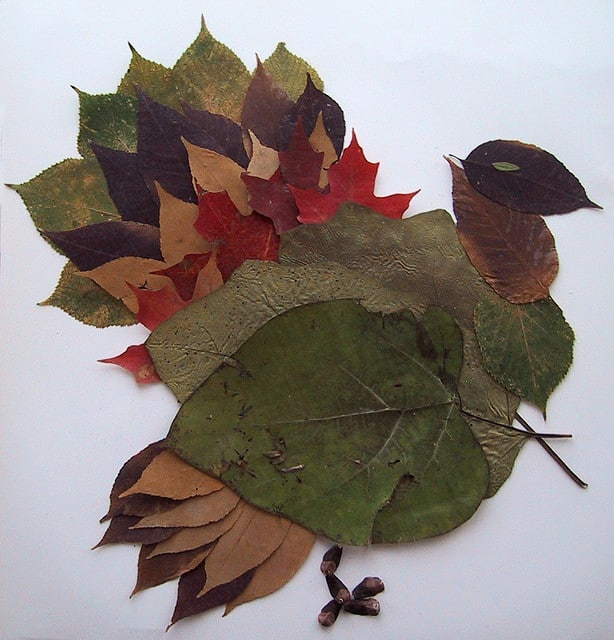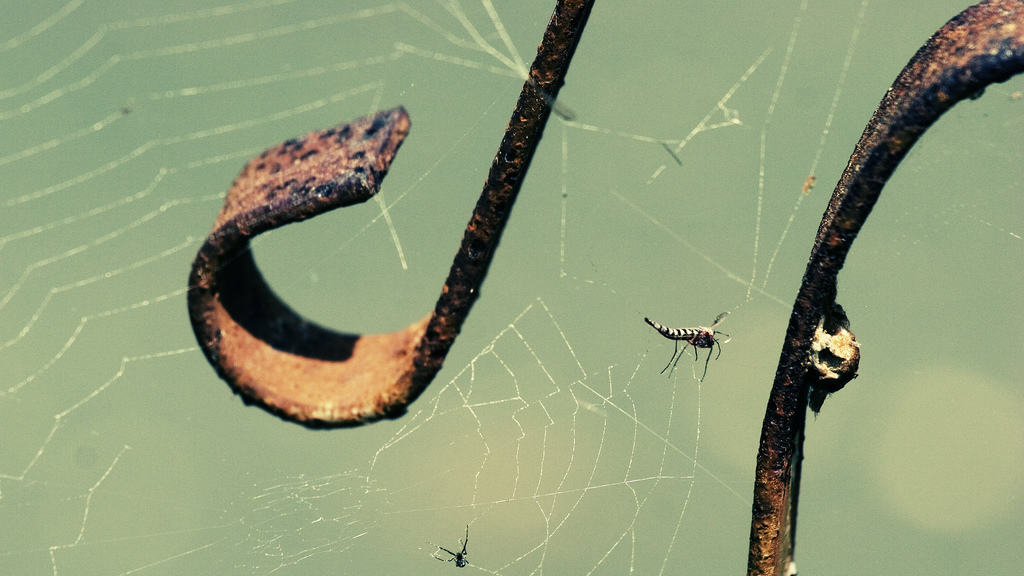Since my early childhood I have marveled at spider webs. A spider silently weaves and bobs in her little corner of the universe to create a web. I’d find them in our old house, or in the forest behind grandma’s house. Playing the less-than-benevolent child-god, I would pluck at a single strand of silk. The entire web would shiver and quake in waves, sending the mother spider into hysterics from her safe perch in the corner. Each tweak and pluck would affect the whole thing. The web’s complexity made it stronger, more stable, but it also made it vulnerable.
***
Thanksgiving is upon us. For many, this can be a trying time. Our parents, siblings, and extended family are the people who have formed us. We owe them for much of who we are, much of how we see the world, and – whether by attraction or repulsion – much of what we believe. They celebrate our strengths and remind us of our weaknesses. They know how to wrap us years of love and just where we’ve hidden those tenderest spots. And because they know us – and we them – they can refresh or irritate us more easily than any stranger or coworker.
If only I was am innocent bystander in this mess. As I head to my own home for a family Thanksgiving, I am tempted to pull out my old family dynamics playbook and run some of the standbys:
- To goad person A, just bring up politics.
- To connect with person B, roll your eyes at uncle C’s latest plans.
- To annoy sibling X, hop on board as people ask when they plan to get married/a real job/serious about life.
We are, each of us, at the center of our own universe. Like everyone who views reality in the first person, I come to family functions thinking that I am on Team Alpha (comprised of level-headed, sensible people). I’ve already predicted how everyone on imperfect Team Beta will act. I’ve been storing up my well-practiced eye rolls and muted sighs for weeks.
***
My friend Tim O’Brien wrote earlier this year that religious traditions are imperfect – and that’s okay. In so doing he quoted Marilynne Robinson: “Those of us who accept a historical tradition find ourselves feeling burdened by its errors and excesses, especially when we are pressed to make some account of them.” As in faith, as in family. Or so it seems to me.
Who hasn’t winced once in a while at how our families or our faiths handle things? Who doesn’t want to step back and say, “that’s not me – I’m on Team Alpha.” I do. Here’s where Ms. Robinson’s gentle hammer breaks me down. “Wisdom,” she writes, “which is almost always another name for humility, lies in accepting one’s own inevitable share of human fallibility.”
***
As I head home for Thanksgiving this year, I choose to set aside the old playbook. I’ll forgo the old game tapes that rehearse old quibbles and button-pushing conversations. I’ll choose not to play the child-god, plucking at the vulnerable strands of my family’s web. Instead I choose to seek out the good – and praise it.
I give thanks for a father, who taught me what it looks like to care for God’s little ones as a speech pathologist to inner city kids.
I give thanks for a mother, who raised us during the week and worked weekend nights in the ER. She would come home – tired and smiling – glad to see us.
I give thanks for siblings who can tease, push each others’ buttons, and still love to spend time together.
I give thanks for aunts and uncles who encourage me, asking for and listening to my big questions and big theories about God and life.
I give thanks for a family that reminds me that we are all perfectly imperfect, a web that is strong, complex, vulnerable.
And as I grow older, I spend less time plucking the web’s strings, and more time marveling at its complexity, vulnerability, and strength, trying to live like the book of Sirach:
And now, bless the God of all,
who has done wondrous things on earth;
Who fosters people’s growth from their mother’s womb,
and fashions them according to his will!
May he grant you joy of heart
and may peace abide among you.



